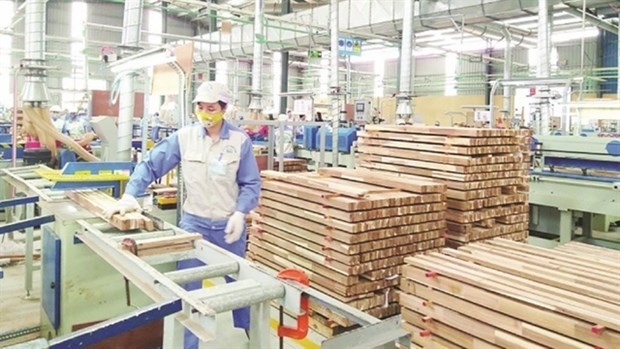
AsemconnectVietnam - When the Comprehensive and Progressive Agreement for Trans-Pacific Partnership (CPTPP) comes into force, businesses will face tougher competition across three tiers including product, business and nation, according to the business community.
The CPTPP is considered a high standard trade agreement which features in-depth commitments. Therefore, Vietnam needs to accelerate institutional reforms to seize upon the opportunities presented from the trade deal.
The leather and footwear industry has seen a host of opportunities emerge for export growth as 10 out of 11 CPTPP member nations are potential export markets. In addition, tax lines for leather and footwear products, along with handbags, will be slashed to zero percent, offering opportunities to further boost exports.
However, Phan Thi Thanh Xuan, vice chairwoman and general secretary of the Vietnam Leather, Footwear and Handbag Association (Lefaso), said small and medium-sized enterprises (SMEs) have still encountered difficulties in grasping the rules of CPTPP markets. In addition, SMEs have also faced serious shortages of capital and in their workforce as they seek to expand their production scale.
Ms Xuan said there remains a lack of policies to support businesses venturing into expanding markets while the garment and textile sector is majorly reliant on imported raw materials.
One of the rules of origin that must be adhered to upon joining the CPTPP is that Vietnam must meet requirements regarding a certain ratio (about 55 per cent) of goods’ materials.
However, SMEs lack the financial capability and human resources as the localisation rate of the leather, footwear and handbag sector still makes up a small proportion.
Leather & footwear is not the only sector facing challenges. Other industries, including the agricultural sector are also facing a number of hurdles as businesses are yet to make changes required by the CPTPP.
Upon the agreement coming into force, the national economy will have to open its door under the commitments of member markets and comply with regulations, institutions and the strict requirements of the high standard agreement.
Mr Le Thanh Hoa, from the Ministry of Agriculture and Rural Development (MARD), said Vietnam has faces difficulties in terms of the product quality and food safety for farm produce due to the strict requirements set by CPTPP member nations.
Mr Hoa emphasized that the developed economies within the CPTPP have always set forth high requirements on food safety in comparison to ASEAN nations. At present, the MARD has proposed raising agricultural standards in farming and breeding activities to ensure the added value of Vietnam’s farm produce and aquatic products.
According to the wider business community, the participation in the CPTPP will create fiercer competition in both CPTPP participating markets and within the domestic market at three levels including product, business and nation. At present, Vietnam’s development level is considered the lowest among CPTPP member nations.
Pham Manh Con, President of the Board of Directors and Director of ElTex Vietnam, said in order to take full advantage of the opportunities, businesses need to grasp the detailed information withinthe agreement.
Mr Con stressed that the CPTPP will offer a wide market but will also pose major challenges, which will require businesses to navigate. He also suggested distributing instruction manuals on the CPTPP as many businesses are not fully aware about the agreement, thus they can better map out suitable business strategies.
Vietnam has been making preparations for its participation in the agreement for the past ten years, according to economists.
Economic expert Nguyen Minh Phong said the nation has also made preparations to begin institutional reforms and improvements needed in the business climate by devising a number of laws such as the Law on Investment, Law on Enterprise, and Law on Public Investment.
Mr Phong noted that the nation will continue to fine tune the legal system to better utilise opportunities brought by the agreement and limit challenges.
He has also advised the country to map out a plan regarding the integration of the CPTPP when the agreement officially comes into force by issuing resolutions and designing the government’s action plans to be effectively implemented at ministries, agencies, localities and associations.
He also underlined the importance of supervising the Laws on Labour and Enterprise to make proper adjustments.
Experts pointed out that in order to take full advantage of the CPTPP, the business community needs to change management and business thinking, build concrete strategies, and upgrade requirements of intellectual property.
Improving the capacity of institutions must be done to protect Vietnam’s intellectual property rights in the process of joining the CPTPP.
They also underlined the importance of enhancing Vietnamese businesses’ competitive capacity, the quality of workforce, and improving the business climate to make breakthroughs in development.
Source: vov.vn






